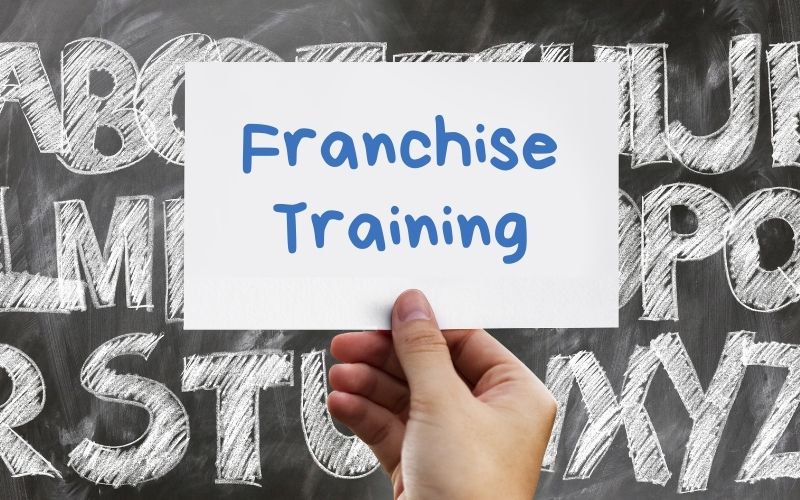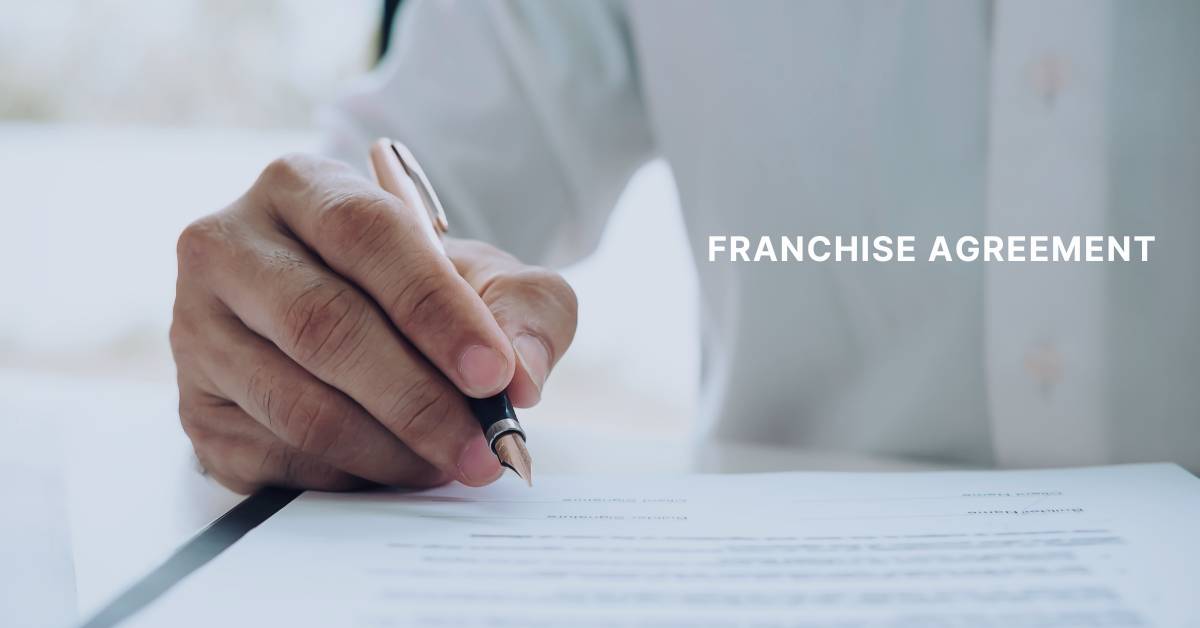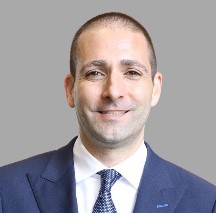Stepping into franchise ownership is a bold and exciting move. But before you dive in, there’s one document you need to understand: the franchise agreement. It’s the rulebook, blueprint, and safety net of your business relationship with the franchisor.
This agreement can seem intimidating because of legal terminology and dense fine print. Don’t let that scare you off. This agreement protects both sides. It sets expectations, defines responsibilities, and outlines how the partnership will work.
The franchise agreement doesn’t just protect the franchisor’s brand. It also gives you a roadmap to build a successful business. One part to pay close attention to? Restrictive covenants. These clauses often stop you from starting a competing business while the agreement is active, and sometimes for a while after it ends.
In this blog, we’ll break down:
- The purpose of the franchise agreement
- Key components every franchisee should know
- How such agreements work
- What to think about before signing
By the end of this blog, you’ll understand why this document is more than a legal formality. It’s your foundation for a strong partnership. It could also help fuel long-term growth and be your best friend in the franchising world.
FAQs
A franchise agreement is basically the rulebook for your partnership with a franchisor. It’s a legally binding document that explains what you can expect from the franchisor—and what they expect from you—when you operate a business using their brand name, logo, and proven system.
Think of it as the foundation of your entire relationship. It sets clear expectations, protects both sides, keeps the brand consistent, and guides you on how to run the business the right way from day one.
It keeps the franchisor’s trademarks, intellectual property, and brand reputation safe. At the same time, it gives franchisees a reliable business model to follow and helps avoid confusion or conflicts later on.
When you really understand what’s in your franchise agreement, you’re better prepared. You gain clarity, confidence, and a stronger sense of control over your investment. It’s not just paperwork—it’s your roadmap for building a successful, profitable franchise.
Read every part carefully—especially the fees, territory rights, restrictions, and renewal terms. It’s also smart to talk to a franchise attorney or consultant who can break down the details and make sure you’re making the best possible decision.
What is a Franchise Agreement
A franchise agreement is the foundation of the franchise relationship between the franchisor and franchisee. The common provisions and key terms are necessary to understand such a relationship.
This legally binding agreement outlines the rights and obligations to operate a franchised business under the franchisor’s brand name, logo, and business model.
It’s a guide to ensure both parties know their roles and responsibilities within the franchise system.
This legal agreement is critical to ensure consistency and understanding across all franchisees. It helps both parties work together to uphold the brand standards and grow the business.
Below are the key points of the agreement:
- Initial fees to establish the franchise, including the main initial franchise fee and additional costs for initial inventory and software licenses as per the franchise agreement.
- Property and equipment requirements to operate the business.
- Operating practices to be followed for consistency and quality.
- Protected territory is granted to the franchisee to prevent overlap and competition within the franchise system.
5 Reasons Why a Good Franchise Agreement Matters

A good franchise agreement is key as it sets the foundation for a successful partnership between the franchisor and franchisee. Indemnification clauses protect the franchisor from legal claims of the franchisee’s business activities. Here are five reasons:
1. Sets Clear Rules and Governance
A typical franchise agreement specifies how the franchise operates and establishes rules to define the roles, responsibilities, and expectations for both the franchisor and the franchisee. Before the franchisee signs a lease, the franchisor must approve the location to ensure it meets brand standards and has potential for success.
These rules:
- are fair,
- protect the brand,
- and prevent operational conflicts.
Example:
Susan can not sell Aunt Lena’s krumkake alongside the desserts from Mighty Cold Ice Cream to ensure brand consistency and quality. Similarly, Bernie cannot lease advertising space to local businesses, which helps maintain the franchise identity without dilution. These policies ensure that every location upholds the same high standards.
2. Protects the Brand and Intellectual Property
A good agreement protects the franchisor’s intellectual property, trademarks, and trade secrets. This protects them from franchisees misusing or jeopardizing the brand’s reputation. The agreement prevents unauthorized changes or additions that harm the franchisor’s goodwill.
Example:
Mighty Cold Ice Cream ensures its franchisees uphold the brand’s identity and reputation. To achieve this, they limit unauthorized menu items and control marketing practices.
3. Promotes Consistency Across Locations
Franchise success relies on delivering a consistent customer experience. Franchise systems create consistency by implementing detailed agreements. These agreements require all franchisees to adhere to the same operational procedures, utilize the same suppliers, and follow standardized recipes and services. This consistency builds customer trust and loyalty.
Example:
Susan in Sacramento and Bernie in Boston use the same recipes and serving sizes. Customers receive a consistent experience at both locations, which builds trust and reinforces brand reliability. This familiarity encourages customers to return, as they know exactly what to expect.
4. Ensures Mutual Clarity and Minimizes Disputes
Transparent franchise agreements prevent misunderstandings by defining both parties’ obligations. It outlines the operational guidelines, advertising contributions, and intellectual property usage for franchisees. Also, franchisors specify training, support, and resource updates. This clarity means a harmonious relationship and fewer conflicts.
Example:
Susan understands that her advertising contributions support national campaigns. Mighty Cold Ice Cream supplies her with marketing materials and training, fostering a mutual understanding that makes their relationship successful.
5. Aligns Interests for Long-Term Success
A franchise agreement aligns the franchisor’s and franchisee’s goals by being a balanced partnership. It allows the franchisee to operate and the franchisor to own the brand. This alignment means growth and success over time.
Example:
The rules that govern Susan and Bernie’s franchises protect the franchisor and give them the tools and guidance to win. Everyone wins with profitability and customer satisfaction.
Before You Sign a Franchise Agreement
Signing a franchise agreement is a big step to becoming a franchisee. Make sure you understand every part of the contract to ensure it matches your business goals and financial situation. Here are some things to consider:
Initial Franchise Fee and Royalties
Franchise agreements have initial and ongoing fees essential to support the franchisor’s systems, brand development, and overall success. These fees include:
Initial Franchise Fee:
A one-off payment by the franchisee to the franchisor when the agreement is signed. This fee gives the franchisee the right to operate under the franchisor’s brand name, use their business systems, and access their training and support. It covers the cost of onboarding and setting up the franchisee’s business.
Royalty Payments:
Ongoing payments by the franchisee to the franchisor for the brand standards, business model, and support. These royalties are usually a percentage of gross sales or a fixed recurring fee. They fund the franchisor’s operational infrastructure and brand-wide initiatives.
When evaluating these costs:
- Check the initial franchise fee to ensure it reflects the value of the support and resources provided by the franchisor.
- Understand how the franchise royalty structure affects your business’s cash flow and profitability.
- Verify whether royalties rely on gross sales or other metrics, and ensure they align with your financial situation.
Reviewing these costs carefully ensures long-term profitability and sustainability of your franchise business and a successful franchise relationship.
Know Your Territory—And Protect It
Before signing a franchise agreement, ensure that it grants you territorial exclusivity. That means no other franchisees or company-owned locations can operate in your designated area. It’s not just a nice-to-have—it’s a competitive edge.
Exclusivity gives you room to grow without fighting off internal competition. You’ll be the only one allowed to serve customers in that market. This resulted in more sales potential, a customer base, and a predictable path to profitability.
Also, check if the franchisor has the right to roll out new services or products in your territory. If they do, find out whether you get first dibs or if someone else can swoop in. On one hand, it can boost brand awareness. On the other hand, it might eat into your revenue.
Why You Need Crystal-Clear Boundaries
Fuzzy territory lines? That’s a recipe for conflict. Overlapping territories, vague maps, or undefined borders can lead to turf wars, customer confusion, and stunted growth.
When your territorial rights are clearly defined, you can focus on building your business, not defending your turf. Locking in those terms builds trust, prevents future headaches, and lays the foundation for a successful franchise partnership.
Franchisee’s Development Obligations

A franchise agreement outlines the franchisee’s development obligations and business operations protocols. This includes:
Operations Manual
The operations manual is a comprehensive guide provided by the franchisor. It has step by step instructions on how to run the franchise. This can cover:
- How to prepare products or deliver services.
- Store layout and design.
- Employee training and management protocols.
Business Systems
Franchisors develop systems that work to streamline operations and increase efficiency. As a franchisee, you are required to use these systems, which may include:
- Specific point of sale (POS) or inventory management software.
- Approved suppliers or vendors for products and materials.
Operating Procedures
Operating procedures are the day-to-day practices that keep the business running smoothly and in line with the brand standards. These can include:
- Protocols for opening and closing the business.
- Guidelines for customer interaction and service delivery.
- Policies for complaints or returns.
- Standardised methods for recording and reporting to the franchisor.
By following these obligations, franchisees contribute to the success and growth of the overall franchise system, but may limit their ability to make operational decisions.
Examine the Training and Support

The franchisor’s training and ongoing support are integral to the success of your franchised business. Review what the agreement specifies, such as initial training, field support, and access to proprietary tools like the operations manual and business systems.
Verify that the franchisor provides consistent assistance for franchisee development obligations, quality control, and marketing initiatives. A robust training program can significantly enhance your ability to meet the brand standards.
Review Your Marketing and Advertising Commitments
Most franchise agreements require you to contribute to a national or regional marketing fund and to run local campaigns that align with the brand standards. Before signing, know exactly how much control you’ll have over local advertising and what kind of marketing support the franchisor provides in return.
If you’re paying marketing fees, make sure they deliver real value. That means brand visibility, targeted campaigns, and strategies that actually drive customers to your location, not just the brand as a whole.
Understand the Financial Performance Claims
The Financial Performance Representations (FPRs) in the Franchise Disclosure Document (FDD) offer a baseline for building realistic financial projections. Use this data to compare against your expected costs, including the initial franchise fee, software licenses, inventory, ongoing royalties, and other operational expenses.
If the FPR is missing or sounds too good to be true, consider it a red flag. With the provided information, you can draft an attainable business plan.
Know Your Renewal and Exit Options
Your agreement should spell out exactly how you can renew your franchise rights, and whether you get first dibs if someone else is interested in your territory. Just as important: know your exit strategy.
If you ever want out, understand the terms for termination. Look closely at post-termination clauses, especially any restrictions on opening a competing business. Planning will help you avoid unpleasant surprises later.
Dig Into Dispute Resolution Terms
Every franchise agreement outlines how conflicts get handled—usually through arbitration, mediation, or both. You need to know what happens if things go sideways.
Make sure the resolution process is fair, cost-effective, and built to encourage collaboration, not legal gridlock. Understanding your options now gives you leverage and peace of mind later.
Lay the Groundwork for Success
By carefully examining fees, marketing responsibilities, financial disclosures, exit conditions, and dispute resolution processes, you are not only safeguarding yourself. You are also positioning yourself for long-term success.
Preparation is more than a checklist; it’s your strategy for staying compliant, maximizing potential, and thriving as a franchise owner in the U.S.
Conclusion
It isn’t just a legal document. The franchise agreement is your playbook, your partner, and best ally in building a sustainable, profitable franchise. It defines your role, outlines the costs, sets expectations, and protects your investment.
Don’t get intimidated by legal language—get informed. When you understand your agreement, you take control of your future.
Want to explore proven franchise opportunities in your area? A franchise consultant can help you turn your business goals into a clear, confident plan.
Your success story starts here.


